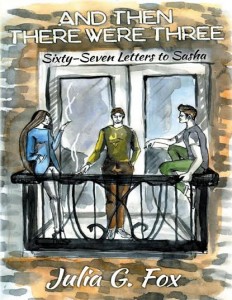
While a major hurdle for LGBT rights in the western hemisphere has finally been overcome in the past few years (legalization of gay marriage in both the United States and the United Kingdom), it looks less and less hopeful that same tolerance can be achieved globally. In former communist bloc countries, the period for modest LGBT freedoms was brief, and homophobia is still widespread. Homosexuality is often considered an abnormality and in some cases, prosecuted under the criminal law.
These countries have a vast population of LGBT members who have lived in the closet for most of their lives while obliged to form traditional families. Spending the majority of their lives attempting to pass as heterosexuals to gain social approval and often engaging in secret same-sex relationships, these gay men and women end up with irreversible damage to their physical and mental health.
‘Coming out is no longer a matter of popular debate, but a matter of public health,’ claim scientists from Louis H. Lafontaine Hospital in Montreal. But for some who spent most of their lives in the closet, it might be just impossible. Whether it is the fear of being rejected by their now grown children, being criminalized by the homophobic society or ostracised by their own community, or the strong belief they would be unable to rebuild their lives with their new identity, these men and women are too broken to start anew.
Here are the main ailments that are likely to develop if you are forced to keep your sexual identity a secret from society and often from yourself:
- Dissociative Identity Disorder. Notable psychiatrist Sullivan and Roughton have discovered that closeted individuals routinely separate their attractions and feelings for the persons of the same sex from their identity. That means these men and women find their desires so unacceptable that they keep them out of their conscious awareness, separating their sexual identity from the rest of their persona. Blocking the anxiety-provoking thoughts about their sexuality forces them to lead a double life and are very often unaware of it.
- Chronic Depression. Increased fear and withdrawal from friends and relatives and the chronic stress of hiding one’s sexuality can lead to excess amounts of cortisol in the body, which contributes to severe depression as well as the general ‘wear and tear’ of the body. Scientists at the Centre for Studies on Human Stress at Louis H. Lafontaine Hospital in Montreal found that staying in the closet weakens your whole immune system in addition to leading to chronicle depression.
- Self-disgust & self-hatred. Socialised into thinking that being non-heterosexual is somehow ‘mad,’ ‘bad,’ ‘wrong’ or ‘immoral,’ many closeted gay and lesbian individuals develop internalized homophobia. They find that they do not belong and do not fit in either the ‘straight world’ or the ‘gay world.’ This painful feeling often leads to self-disgust, self-hatred and contempt for the more open LGBT members.
- Low self-esteem and negative self-view. Both can lead to avoiding fulfilling relationships with others. Spending the majority of their lives attempting to pass as heterosexuals to gain social approval, many closeted individuals develop low self-esteem and negative body image, which brings with them such issues as fear of intimacy, deep shame about their sexual experiences and inability to develop emotional intimacy, psychologists claim.
- Alcohol/drug-abuse & suicidal thoughts. Growing increasingly withdrawn and depressed, closeted individuals often follow unsafe sexual practices and engage in other destructive, risk-taking behaviours. Being ostracised by the community, fearing shame and physical torture and imprisonment, creating heterosexual families and dissociating themselves from gay population altogether leads many to a life of substance abuse and addictions. Constantly haunted by suicidal thoughts, many consider ending their lives.
 My relationship with a closeted gay man, Sasha (who was actually my husband’s lover years before I married him and I chronicle in my memoir And Then There Were Three: Sixty Seven Letter to Sasha) opened my eyes to the many aspects of homosexuality and the life paths that LGBT men and women choose in the parts of the world where homosexuality is still considered an abnormality. The freedoms that sexual minorities enjoy in democratic countries today are precious and unheard of in such places as Ukraine, Russia, Belorussia, Azerbaijan and other post-Soviet territories. Giving American LGBT members a glimpse into the lives of those who are less fortunate and still struggling for their rights will be an eye-opening read for many.
My relationship with a closeted gay man, Sasha (who was actually my husband’s lover years before I married him and I chronicle in my memoir And Then There Were Three: Sixty Seven Letter to Sasha) opened my eyes to the many aspects of homosexuality and the life paths that LGBT men and women choose in the parts of the world where homosexuality is still considered an abnormality. The freedoms that sexual minorities enjoy in democratic countries today are precious and unheard of in such places as Ukraine, Russia, Belorussia, Azerbaijan and other post-Soviet territories. Giving American LGBT members a glimpse into the lives of those who are less fortunate and still struggling for their rights will be an eye-opening read for many.
Julia Fox immigrated from Russia in her late teens, settling in the United States in the early 90s. She published two books of poetry before leaving her home country, both in Russian, and published two more in English language after immigrating. And Then There Were Three: Sixty Seven Letters to Sasha is her first autobiographical memoir.












Im a 32 year old woman that lives in Texas, my only child goes to a christian private school, im with a man…seems normal on the outside..but inside is very diffrent. Im a lesbian..closeted, even here in texas its not safe, especially if i want my child to have her education. It sucks, it hurts, i just want to be me and i know that i cant. My family would disown me they are all strict, would not be safe for my child..so i keep my emotions to myself everyday, i suffer from horrible depression. .that to i keep underwraps. I hate it, but i love my my child..her happiness over mine..but still i dream of a day when i can just be..me.
Sending you and wishing you all the love and strength and warmth I can muster.
The day will come when you can be yourself. I will pray for you. Hang in there, sara, and know there are many who love you. Your day will come.
Great info. Thank you. Really hit home
It’s a very spot on article. Very accurate. Ptsd, eating disorders, getting addicted to everything, trying to kill yourself but waking up in solitary confinement because trans people are just tortured like that for no reason I can take care of my own self, C.O. . I don’t think we were meant for this world, and with the rise of neo-nazism in Washington I’m certain I’ll die in the closet. I was out for 3 years, it was even worse. People are just evil. I didn’t ask to be born. I just want it all to go away.
this article had amazing information; it really helps people understand why its hard for us to come out or while its also difficult staying in the closet.
Spot on I have been with a woman for the last thirteen years it tears me apart. I don’t know if she knows. I Am at the point where I am tired of hiding I want to be who I am and be happy. Not full of fear and self- hatred
I’m a 24yr old closeted lesbian. It hurts so much hiding what/ how i feel and can’t express it to the open world. It’s slowly killing me but i hope this will be over someday. In my country homosexuality is punishable by imprisonment for at most 7-12 yrs.
This makes me so sad. I know how painful this must be.
I should just come out. It’s so much of a privilege to live in a country where I can.
i am a 14 year guy and i go to a christan private school. i want to come out to my mom and my family and friends, but i dont know if they will accept me. what should i do